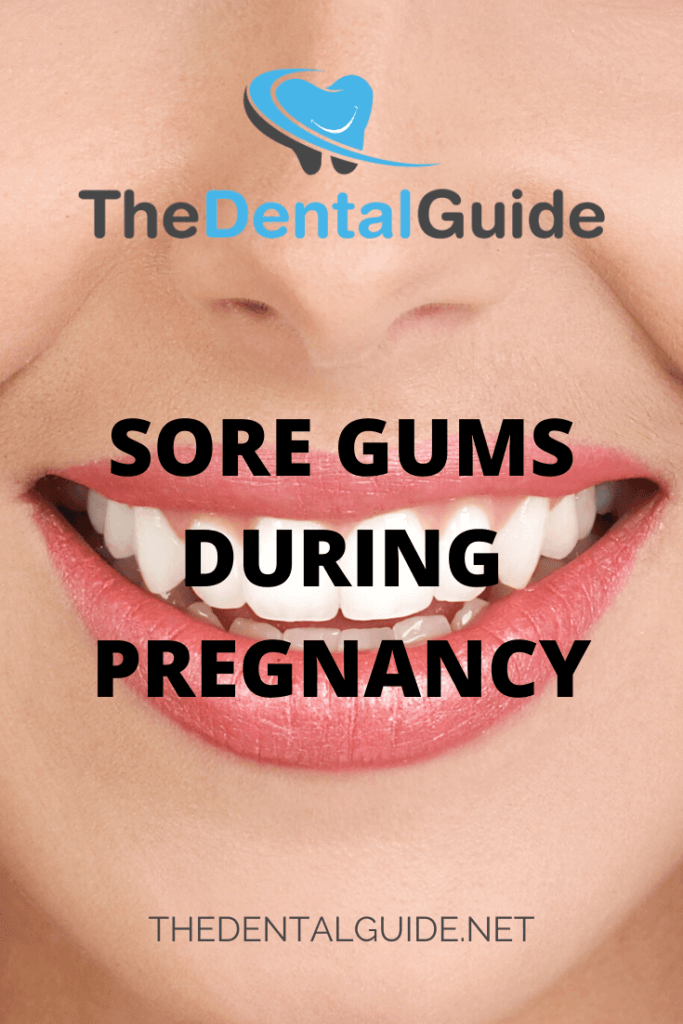Your body goes through many changes during pregnancy, but you may have been caught off guard when these changes even happen in your mouth. Many pregnant women experience sore gums during pregnancy; they are often swollen and prone to bleeding.
We expect sore or bleeding gums in pregnancy with the changes in hormones, habits, and food. Let’s walk through what to expect and how best to deal with this.
What Causes Swollen or Bleeding Gums During Pregnancy?
A woman’s body is continuously changing during pregnancy. As hormones skyrocket, mood swings, nausea, and forgetfulness are just a few common side effects. But how do these affect your oral health?
As estrogen and progesterone rise, a woman’s blood flow increases to between 20 and 100 per cent of her pre-pregnancy blood volume. This helps keep all the essential nutrients and oxygen flowing to the baby, but there are a few side effects of this increased flow. The gums are extra sensitive and larger due to the increase in blood volume. This new sensitivity may have them reacting more to the usual amount of plaque. So, brushing twice a day and flossing is all the more important during pregnancy.
In addition to the hormones, the majority of pregnant women experience morning sickness and nausea during pregnancy. If you do suffer in this way, your stomach acids will actually coat your teeth for a while. This attacks your enamel and irritates your gums. Together, this can speed up gum disease or gingivitis.
Lastly, your habits, from eating to taking care of yourself, change as your emotions change. Some women have trouble deciding what to eat, so they might end up choosing simple, sugary snacks they have on hand. Sugar causes tooth decay and can quickly cause issues with sensitive gums as plaque builds up.
In addition, some women may simply forget to brush their teeth or find the smell of their toothpaste off-putting during pregnancy. If this is you, consult with your dentist about different options you have to care for your teeth while avoiding odours you can’t stand right now.
When During Pregnancy Does This Usually Occur?
Depending on the cause of your sore gums from pregnancy, symptoms may arise at different times. Many women who experience intense nausea or mood swings in the first trimester see changes to their teeth before the second trimester rolls around.
However, it is much more common to see gum disease, gingivitis, and other oral issues arise in the second and third trimester. Usually, your teeth and gums will go back to their pre-pregnancy state within 6-8 weeks after delivery.
Treatment
First and foremost, continue your dental care throughout pregnancy. Many women are wary of going to the dentist, afraid it will affect the baby. But, dentists are knowledgeable of how different treatments affect your little one, so they will skip the x-rays for now.
If you haven’t seen a dentist in a while, pregnancy is a great time to get a cleaning in before the little one arrives. While you may not want someone poking around in your mouth when you are already feeling nauseous, dental care is crucial to a healthy pregnancy. At the appointment, your dentist can assess your gums and help you formulate a plan to fight any gum disease that has taken hold.
Some dentists may bump up your cleaning schedule to once a trimester to assist you in keeping your teeth and gums healthy. But, they may ask you to do more than these additional cleaning and checkups. In extreme cases, oral antibiotics may be prescribed if gums are badly infected. Depending on the severity, a prescription-strength mouthwash can also help treat gingivitis.
Prevention
In addition to your regular dentist appointments, here are a few ways to prevent swollen, sore, or bleeding gums during pregnancy:
- Gargle with saltwater. This keeps bacteria at bay without exposing you or your baby to chemicals found in many types of mouthwash.
- Brush your teeth for two minutes, two times per day. If you vomit, consider doing a quick brush to remove the acid from your teeth and foul taste from your mouth.
- Floss once per day. This is vital to removing plaque hidden between your gum and tooth.
- Eat healthy meals and snacks. Cutting out sugar throughout the day will keep tooth decay to a minimum during this extra-sensitive time.
By following these tips to maintain or even improve your oral health during pregnancy, your mouth should return to its normal state without any issues once the little one arrives.
